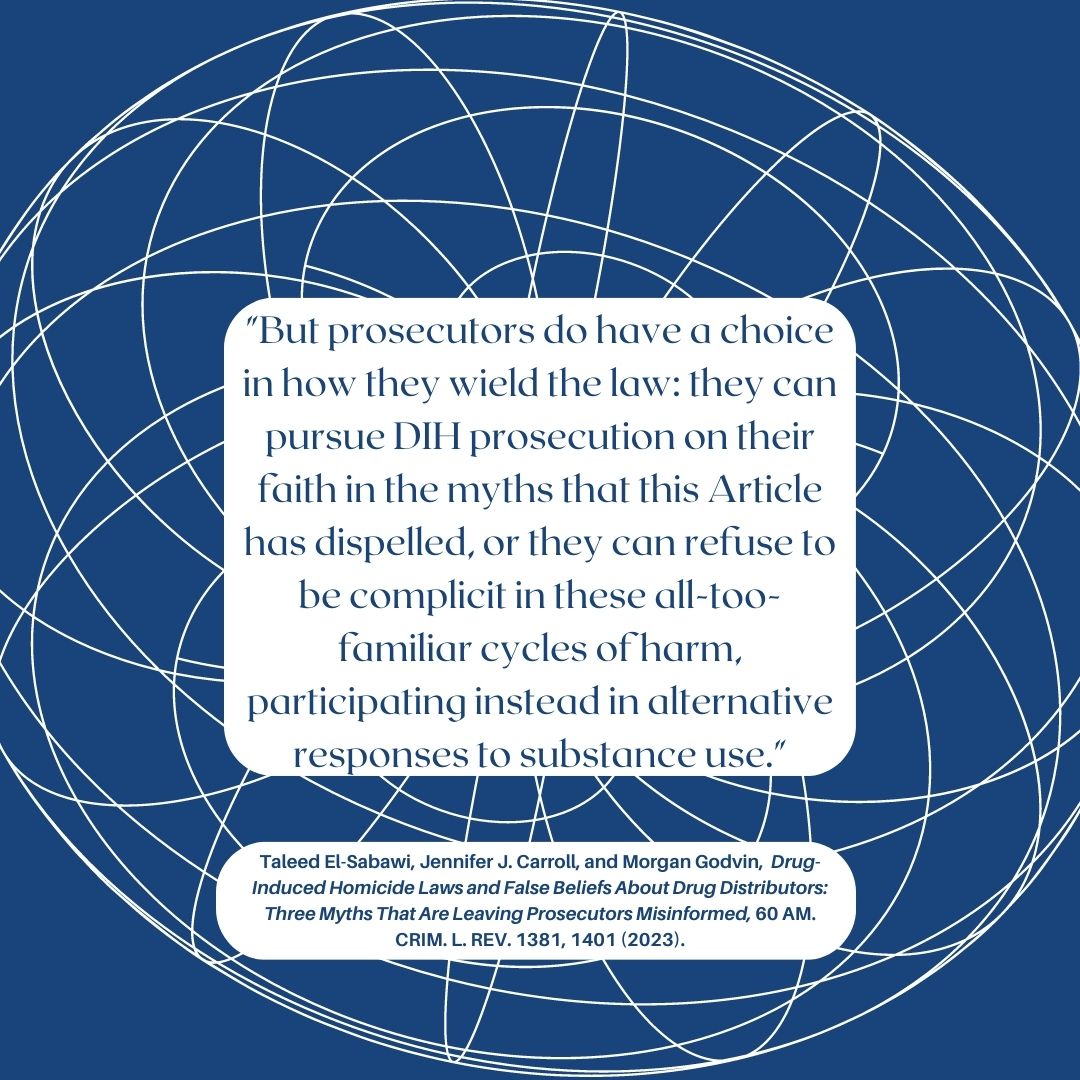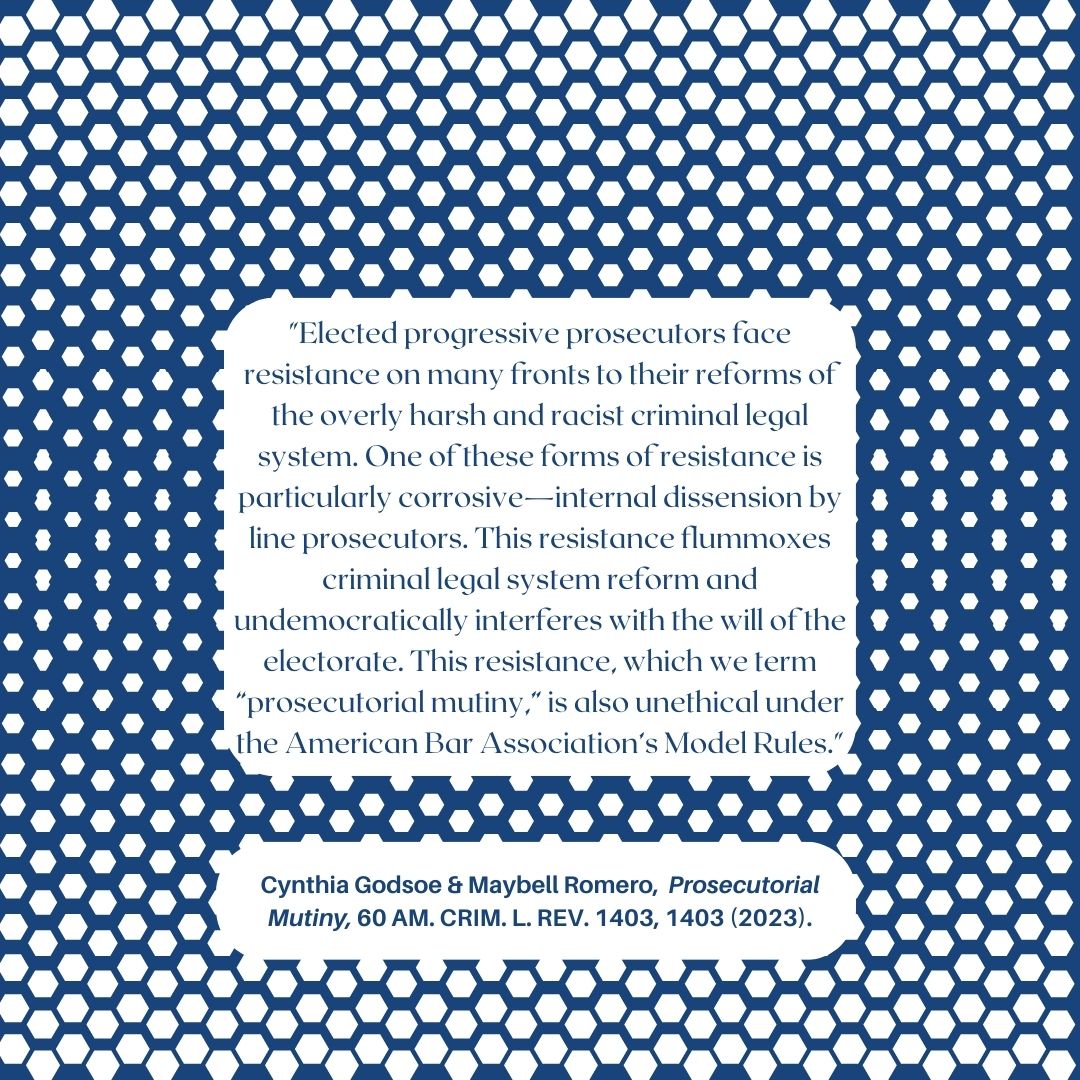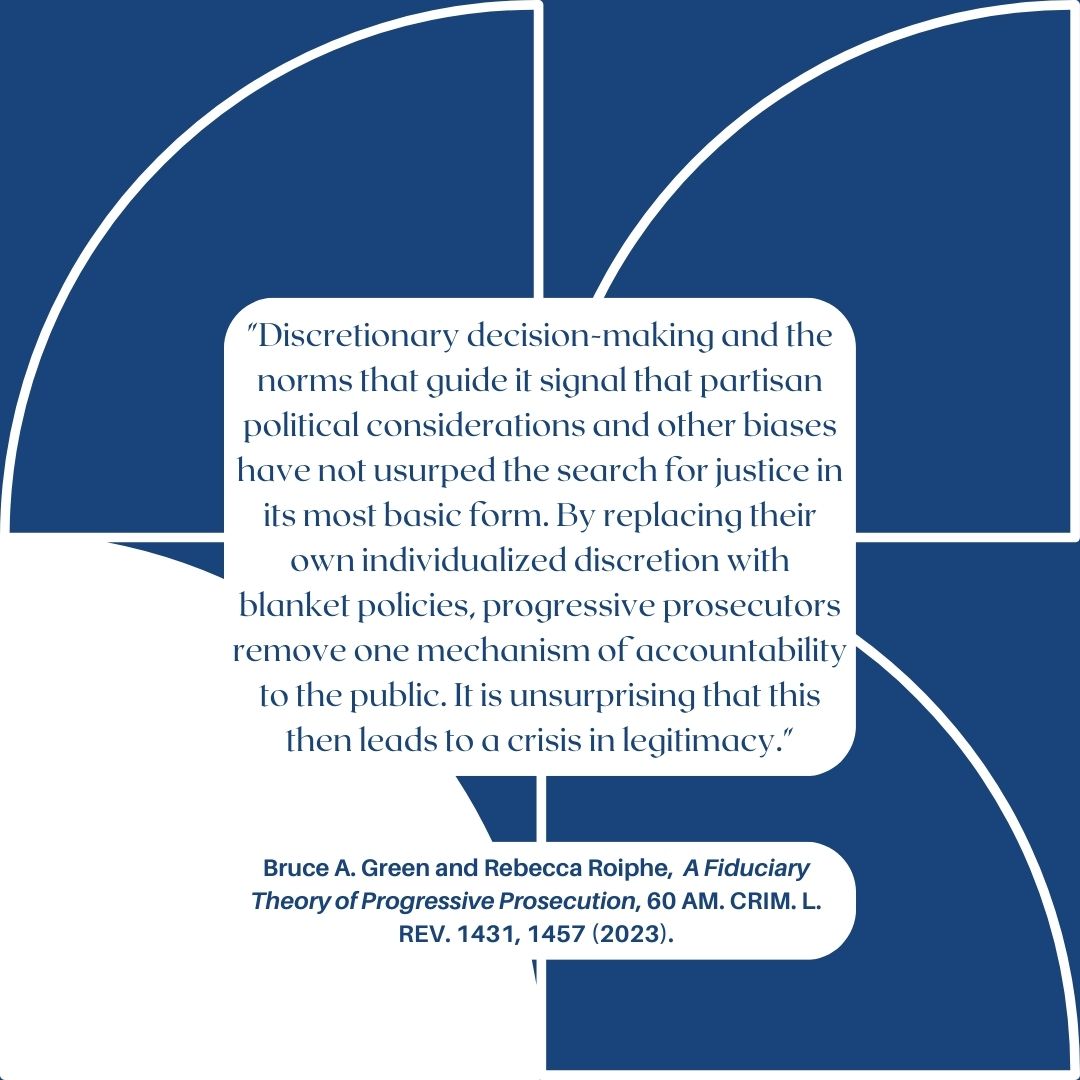
American Criminal Law Review
@amcrimlrev
Official Twitter account of the American Criminal Law Review, @GeorgetownLaw | Instagram: @amcrimlrev | Facebook: @GULCACLR
ID: 2180823216
https://www.law.georgetown.edu/american-criminal-law-review/ 07-11-2013 20:40:25
583 Tweet
1,1K Followers
242 Following




In one of this spring's ACLR Online contributions, Aasha Rajani conducts an enlightening interview with Heather Pinckney, Director of Public Defender Service for D.C.. Check out the link in our bio to read more!





In the first of our Volume 60-4 Symposium articles focusing on Reform-Minded Prosecution, Taleed El-Sabawi, JD, PhD, Jennifer J. Carroll, and Morgan Godvin analyze the prosecution of drug-induced homicides, and how several myths are harming justice in America. Read more via the link in our bio!


Thanks again to Morgan Godvin for lending her lived experience & @veruka2 for her critical mind & tenacity —preliminary findings from our survey of prosecutors on drug induced homicide laws here 👇🏽👇🏽

In the second of our Volume 60-4 Symposium articles focusing on Reform-Minded Prosecution, Cynthia godsoe and Maybell Romero address the dilemma of intraoffice mutinies occurring in prosecutors offices across the country. Read more via the link in our bio!


In the next of our 60-4 Symposium Articles, Bruce A. Green and Rebecca Roiphe use fiduciary theory to present a compelling analysis of why many progressive prosecutors have run into challenges when attempting to implement reforms to their office. Read more via the link in our bio!






















